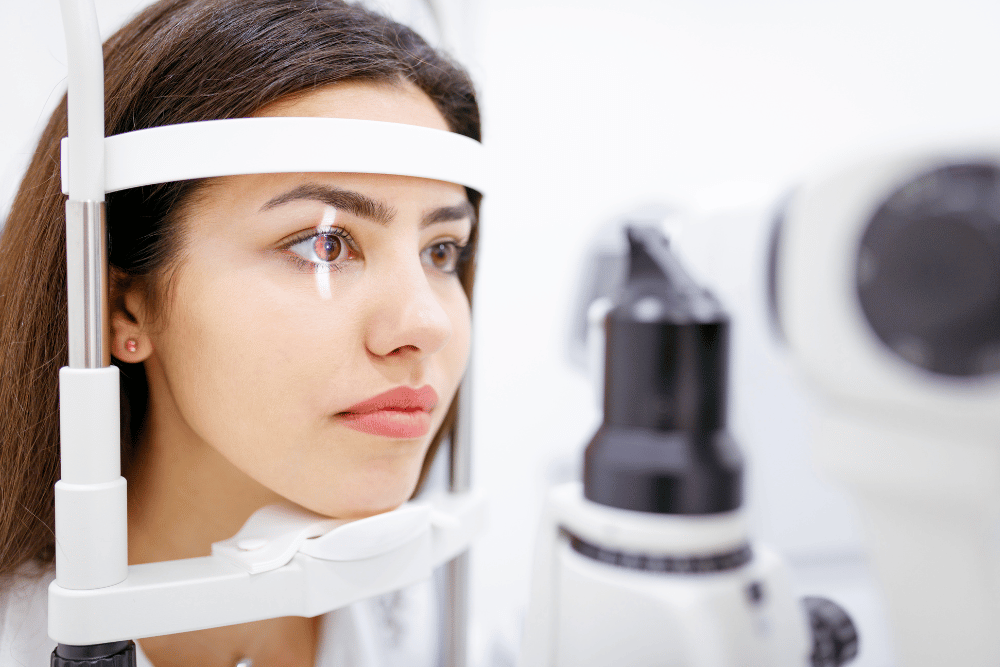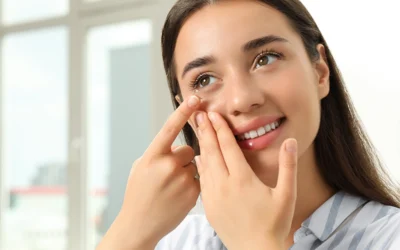Taking care of your eyes is an important part of your overall health. Even if your vision seems fine, it can change without you even realizing it. Eye diseases can also develop without any symptoms in the early stages. Regular eye exams can detect problems early, help you manage existing eye conditions, and teach you proper eye care. So, how often should you schedule an eye exam?
General guidelines for eye exams
For most people, eye exams should be scheduled every one to two years. If you’re under 65 and don’t have any vision problems or known risk factors, a comprehensive eye exam every two years is typically sufficient. However, if you wear glasses or contact lenses or have a family history of eye diseases, the American Optometric Association (AOA) recommends visiting your eye doctor once a year.
As you get older, your risk of developing eye conditions increases. Individuals 65 and older should schedule annual eye exams since age-related eye conditions like cataracts, macular degeneration, and glaucoma become more common at this point. Regular check-ups can help catch these issues early and prevent further vision loss.
When more frequent eye exams are needed
Some people may need to see their eye doctor more frequently, depending on their specific health needs. If you have any of the following conditions, you should schedule eye exams at least once a year:
- Diabetes or hypertension: These conditions can affect your eyes, increasing the risk of vision problems. Regular exams help catch any changes early.
- A family history of eye disease: If you have a family history of glaucoma or macular degeneration, your eye doctor may recommend more frequent visits to monitor your eye health.
- Eye surgery or injuries: If you’ve had eye surgery or experienced any kind of injury, it’s important to have regular follow-up exams to ensure your eyes are healing properly.
- Children and teens: Kids and teens should also have regular eye exams, especially as their vision can change quickly as they grow.
Why are regular eye exams important?
Regular eye exams are crucial for maintaining optimal vision and eye health. They help our eye doctors detect eye diseases early, such as glaucoma and diabetic retinopathy, often before symptoms appear. This early detection increases the chances of successful treatment.
These check-ups also ensure your vision prescriptions are up to date. As your eyesight changes over time, having the right prescription helps you see clearly. Additionally, eye exams provide insights into your overall health. Your eyes can reveal signs of conditions like diabetes or hypertension, allowing for early intervention.
In conclusion
Ultimately, how often you should get an eye exam depends on your age, overall health, and specific risk factors. If you’re unsure about when your next eye exam should be, consider reaching out to your eye care provider. They can help you figure out the best schedule based on your age, health, and vision needs. If it’s time for your next eye exam or if you have any concerns about your vision, contact us today to schedule an eye exam in Council Bluffs.




